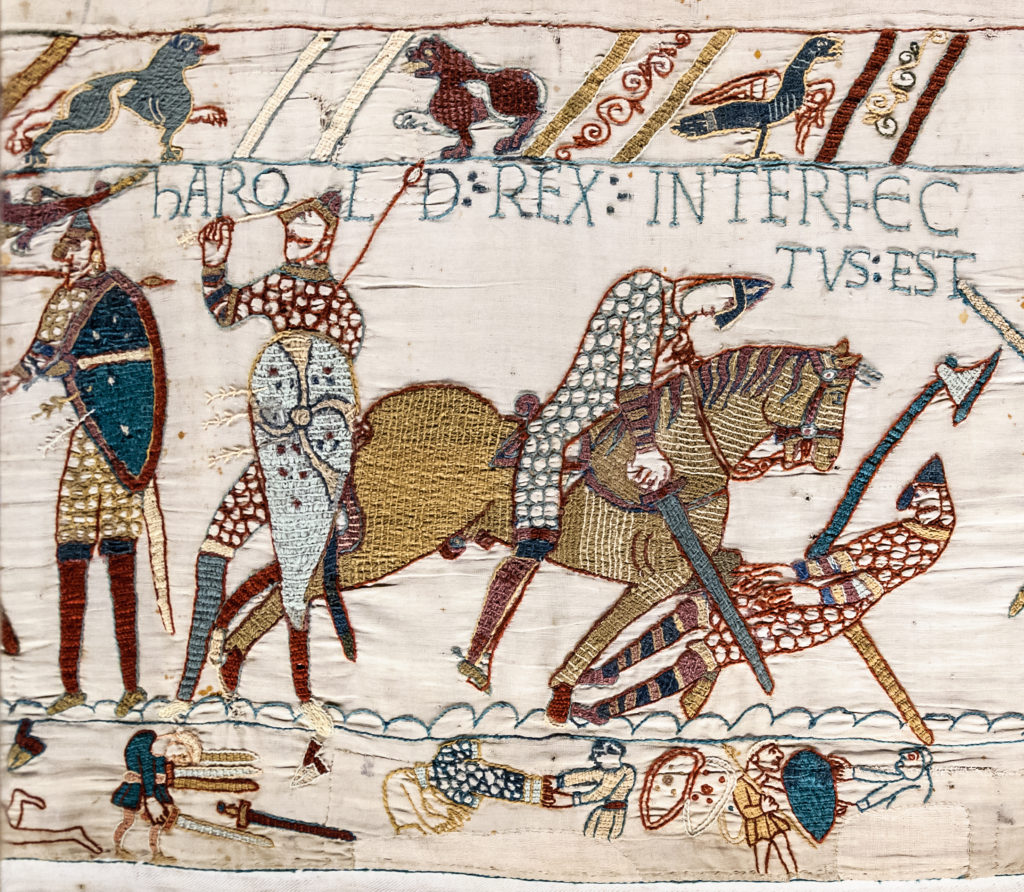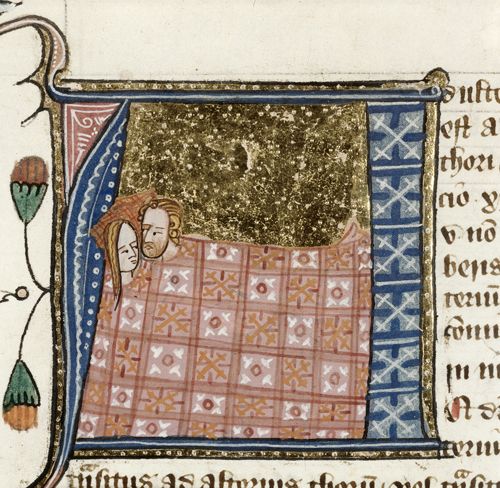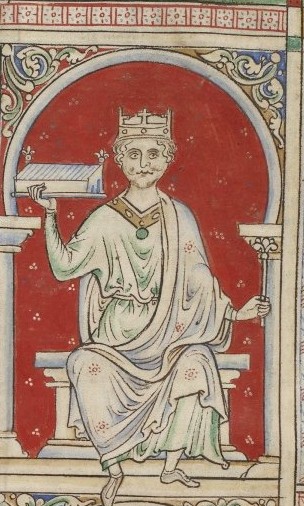This episode, we explore a character analysis of an unpopular leader, as William of Malmesbury explains how the virtues of William Rufus transformed into his greatest vices. Along the way, we also learn why pointy shoes are indicators of moral degradation.
Today’s Texts:
- William of Malmesbury. Chronicle of the Kings of England. Edited by J.A. Giles, translated by John Sharpe and J.A. Giles, George Bell & Sons, 1895. Google Books.
- Orderic Vitalis. The Ecclesiastical History of England and Normandy. Vol. 2. Translated by Thomas Forester, Henry G. Bohn, 1854. Google Books.
References:
- Barlow, Frank. William Rufus. Yale English Monarchs, Yale UP, 2000. First published by Methuen London, Ltd., 1983.
- Disraeli, Isaac. Miscellanies of Literature. Revised ed., vol 1, Baudry’s European Library, 1840. Google Books.Gransden, Antonia. Historical Writing in England. Cornell UP, 1974.
- Jolliffe, J.E.A. Angevin Kingship. Adam and Charles Buck, 1955.
- Schütt, Marie. “The Literary Form of William of Malmesbury’s ‘Gesta Regum.'” The English Historical Review, vol. 46, no. 182, Apr. 1931, pp. 255-260. JSTOR,https://www.jstor.org/stable/552950.
- Shapiro, Susan C. “‘Yon Plumed Dandebrat’: Male ‘Effeminancy’ in English Satire and Criticism.” The Review of English Studies, New Series, vol. 39, no. 155, Aug. 1988, pp. 400-412. JSTOR, www.jstor.org/stable/516769.
Image: William Rufus, as drawn by Matthew Paris (via Wikimedia Commons)
The Medieval Death Trip Christmas Playlist on Spotify: https://open.spotify.com/playlist/5EmlXCdeLV3HPmspb0I9AX?si=xLAmcPy5T-ORU_5xIvvyzg
We’re back from our hiatus to remember the Battle of Hastings on its 950th anniversary by looking at the account of the battle in the
Historia Ecclesiastica of Orderic Vitalis.
This Episode’s Text:
- Orderic Vitalis. The Ecclesiastical History of England and Normandy. Vol. 1. Translator, Thomas Forester. London: Henry G. Bohn, 1853. [Available via Google Books.]
- Orderic Vitalis. The Ecclesiastical History of Orderic Vitalis. Vol. 2. Editor and Translator, Marjorie Chibnall. Oxford: Clarendon Press, 1969.
Other References:
- Chibnall, Marjorie. “General Introduction.” The Ecclesiastical History of Orderic Vitalis. Vol. 1. Editor and Translator, Marjorie Chibnall. Oxford: Clarendon Press, 1980. 1-125.
- Gransden, Antonia. Historical Writing in England. Ithaca: Cornell UP, 1974.
Image: Detail of the death of King Harold from the Bayeux Tapestry (via Wikimedia Commons).

Tapisserie de Bayeux – Scène 57 : La mort d’Harold

This episode, we return to the
Lanercost Chronicle for some examples of clergy behaving in some unclergylike ways, with a particular look at the decline and fall of clerical marriage in the medieval church.
This Episode’s Texts:
-
The Chronicle of Lanercost: 1272–1346. Trans. Sir Herbert Maxwell. Glasgow: James Maclehose and Sons, 1913. (Available at
archive.org.)
-
Ordericus Vitalis.
The Ecclesiastical History of England and Normady. Vol. 4. Trans. Thomas Forester. London: Henry G. Bohn, 1856. (Available at
Google Books.)
References:
- Brooke, C.N.L. “Gregorian Reform in Action: Clerical Marriage in England, 1050-1200.” Cambridge Historical Journal 12.1 (1956): 1-21.
- Frazee, Charles A. “The Origins of Clerical Celibacy in the Western Church.” Church History 57 Supplement: Centennial Issue (1988): 108-126. Reprinted from Church History 41 (1972): 149-167.
- McLaughlin, Megan. “The Bishop in the Bedroom: Witnessing Episcopal Sexuality in an Age of Reform.” Journal of the History of Sexuality 19.1 (Jan. 2010): 17-34.
Image: Detail depicting the sin of adultery from British Library MS Royal 6 E VI f. 61.






Recent Comments